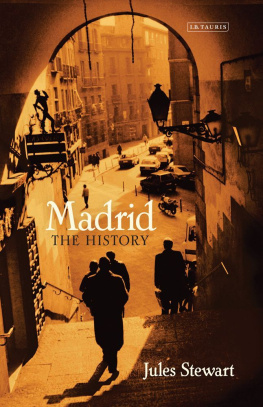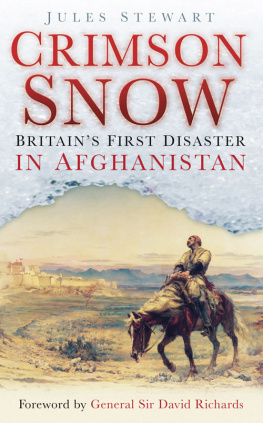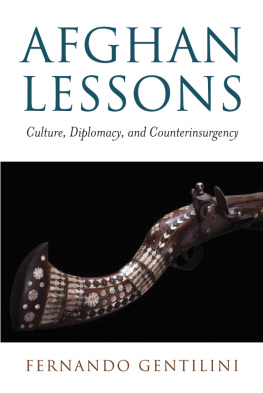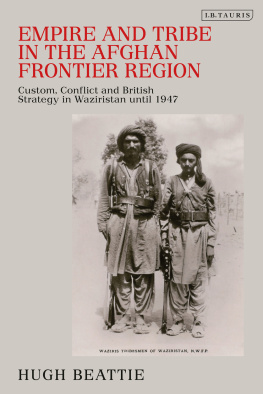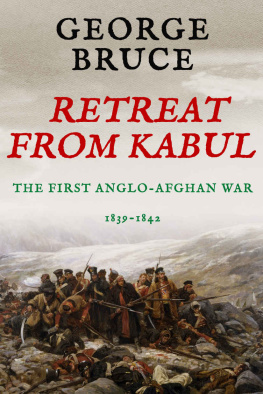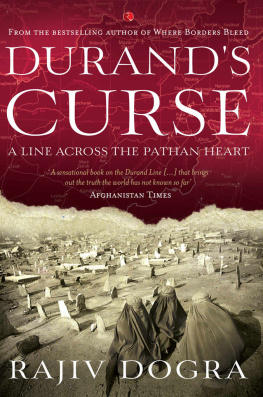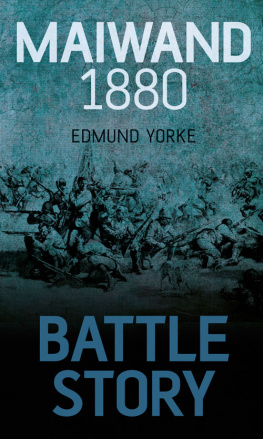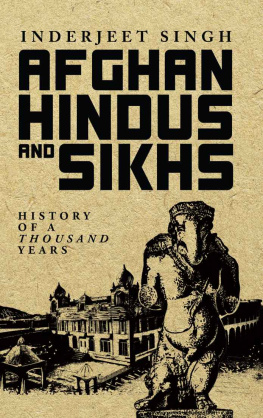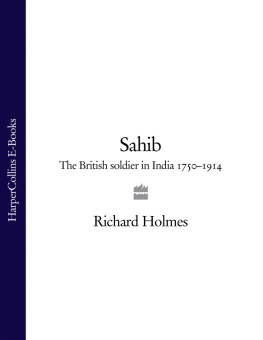Published in 2011 by I.B.Tauris & Co Ltd
6 Salem Road, London W2 4BU
175 Fifth Avenue, New York NY 10010
www.ibtauris.com
Distributed in the United States and Canada Exclusively by Palgrave Macmillan
175 Fifth Avenue, New York NY 10010
Copyright Jules Stewart, 2011
The right of Jules Stewart to be identified as the author of this work has been asserted by the author in accordance with the Copyright, Designs and Patent Act 1988.
All rights reserved. Except for brief quotations in a review, this book, or any part thereof, may not be reproduced, stored in or introduced into a retrieval system, or transmitted, in any form or by any means, electronic, mechanical, photocopying, recording or otherwise, without the prior written permission of the publisher.
ISBN: 978 1 84885 717 9
eBook ISBN: 978 0 85773 027 5
A full CIP record for this book is available from the British Library
A full CIP record is available from the Library of Congress
Library of Congress Catalog Card Number: available
Designed by Glen Drake
Typeset in Bembo by Pindar NZ, Auckland, New Zealand
Illustrations
Maps
1 Afghanistan and North-West Frontier
2 Advance of the Army of the Indus into Afghanistan, 1838
3 British Retreat from Kabul to Jalalabad, 1842
Plate section
1 Ahmad Shah Durrani, Founder of the Afghan Empire in 1747
2 Dost Mohammed with his youngest son. Dost Mohammed, one of Afghanistans wisest emirs, ruled from 1826 to 1863. He was deposed in 1839 by the British, who placed Shah Shuja on the throne, and restored to power in 1842
3 Shah Shuja
4 Lady Florentia Sale, whose diaries revealed the tragic events that led to the Armys destruction on the retreat from Kabul
5 Alexander Burnes, the Governments envoy to the Court of Dost Mohammed, was the first high-profile victim of the Kabul uprising
6 Akbar Khan was Dost Mohammeds favourite son, responsible for the Armys massacre
7 William Macnaghten, the Governments chief political representative in Kabul, was murdered by Akbar Khan
8 The Last Stand of the 44th Regiment at Gundamak, 1842. Painted by William Barnes Wollen. Image courtesy of the Essex Regiment Museum, Chelmsford
9 A young Pashtun tribesman awaits his victims in an Afghan Pass
10 Sher Ali Khan, known as the Iron Emir, was Afghanistans longest ruling king, who occupied the throne from 1863 to 1879. He died in exile after the British launched their second invasion of Afghanistan
11 Field Marshal Lord Roberts of Kandahar, the legendary military figure who led the famous march from Kabul to Kandahar, where he defeated the Afghans and won the Second Afghan War
12 The Battle of Maiwand turned into a disastrous rout that cost the British more than one thousand casualties. It was one of the few instances in the 19th century of Asian forces achieving victory over a European Army. Image courtesy of the National Army Museum
13 A Russian stands in frustration at the door to British India, padlocked out by the Treaty of Gandamak
14 After the massacre of the Cavagnari Mission in Kabul, the Afghan is fed a portion of British rule
15 Badges in the Khyber Pass of British and Indian army regiments that fought in the Afghan wars and on the North-West Frontier
16 A caravan negotiating a narrow pass in Afghanistan. These caravans were also used to transport smuggled weapons to Pashtun fighters
17 King Amanullah invaded British India in 1919, touching off the Third Afghan War. The Emir lost the war but claimed victory for having recovered Afghanistans full independence. He was forced to flee his country in 1929
18 The Khyber Pass, the major trade and invasion route between Central Asia and India
19 A street in the Peshawar bazaar around the time of the Third Afghan War
20 Royal Air Force BE2C biplanes, used to bomb Afghan positions in the Third Afghan War and later against rebellious Pashtun tribesmen on the North-West Frontier
21 A newspaper illustration of the RAF bombing Kabuls Bala Hissar fortress in the Third Afghan War
22 The border crossing between the North-West Frontier and Afghanistan. Travellers are warned to leave here on the return journey and be back in Jamrud no later than 5:00pm. Image courtesy of the Field Family Collection
Foreword
General Sir David Richards,
Chief of the Defence Staff
The conflict in Afghanistan is entering a critical phase as political leaders begin to recognise that we need to engage with the Taliban to negotiate a sustainable peace. This is not an admission of weakness or defeatism on the part of NATO forces. On the contrary, those militants who can be persuaded to sit down and talk to us are in fact acknowledging that militarily we hold the upper hand and that victory is not within their grasp. The Taliban know they can never defeat us in open combat and this is why they have fallen back on guerrilla tactics, planting roadside improvised explosive devices (IEDs) and resorting to suicide bombings. But we must not let our guard down, for we will only achieve our objectives by negotiating from a position of strength. The Taliban have been forced to give serious consideration to continuing the fight. If we maintain our resolve military conflict is likely to trail off and our combat role start to decline. Increasingly the Afghan Army and police, as they continue to grow in stature and confidence, will take over from NATO/ISAF nations. But the latter will remain to help the army and police in training and support functions well beyond the declared end to their role in combat operations in December 2014. We have every reason to be confident but that confidence should translate into a preparedness concurrently to pursue a political solution.
It is going to require some bold initiatives to create a forum for reintegrating Taliban insurgents who are not irreconcilable. We must think in terms of power-sharing deals with Taliban leaders and economic incentives for the rank-and-file militants. Afghanistan has been embroiled in conflict for more than thirty years, everyone is weary of war and the Taliban know they are not supported by the vast majority of Afghans.
Concomitant with our continuing military effort, it is crucial to convince the ordinary Afghans that NATO is not the enemy and that we can help them achieve their priorities. These people are not so different from us: their basic wants are a brighter future for their children, justice, decent infrastructure with clean drinking water and affordable electricity, for instance, and above all jobs and security. We need to carry on with the counter insurgency strategy put forward by General David Petraeus, the current ISAF commander. We are fighting a political as well as a battlefield war and this embraces many aspects of nation building, from education and reconstruction to tackling corruption and whatever else involves the local population.


